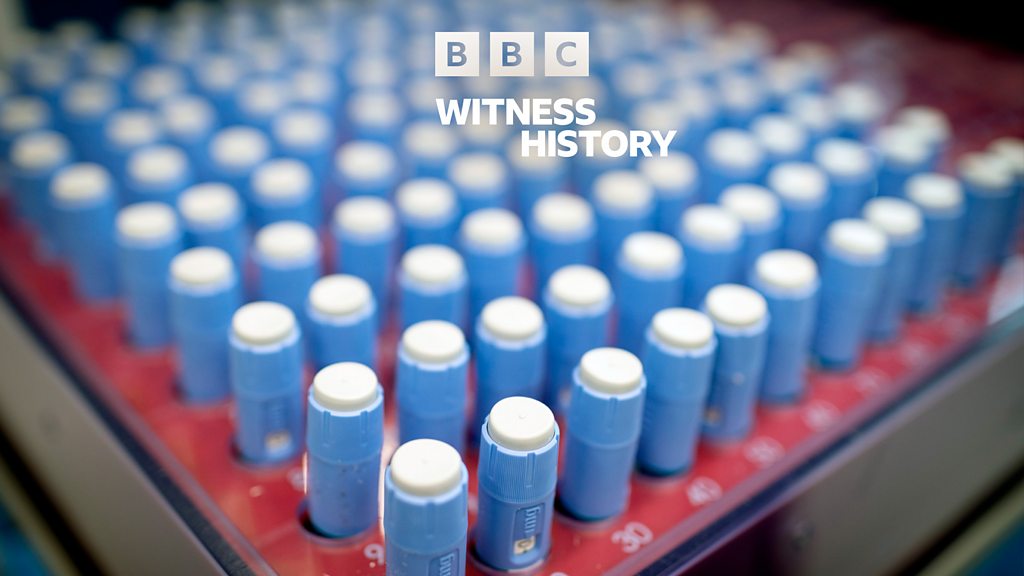#type-2-diabetes
#type-2-diabetes
[ follow ]
#glp-1 #weight-loss #cardiovascular-disease #obesity #coffee #gut-microbiome #mortality #blood-sugar #mounjaro
fromwww.mercurynews.com
1 week agoPhil Collins details health struggles, says he has 24-hour live-in care
I have a 24-hour live-in nurse to make sure I take my medication as I should do. I've had challenges with my knee I had everything that could go wrong with me, did go wrong with me I mean, I got COVID in [the] hospital, my kidneys started to back up everything that could [have gone wrong] all seemed to sort of converge at the same time.
Music
fromPsychology Today
3 weeks agoGLP-1 Medications: Conversations and Considerations
The rise in individuals who are prescribed GLP-1 medications has resulted in online discussion and a stigma that is apparent across all media channels. Instead of looking at why these medications are proving to be so effective from a scientific standpoint, many individuals online fuel conversations surrounding controversy and judgment. For example, many celebrities have come under public criticism for using GLP-1 medications, with critics claiming that they are "cheating" their way to weight loss and improved health.
Medicine
Medicine
fromwww.scientificamerican.com
1 month agoHeart and Kidney Diseases, plus Type 2 Diabetes, May Be One New Syndrome Treatable with New Drugs
Cardio‑kidney‑metabolic syndrome links heart, kidney, and metabolic diseases through shared biological mechanisms often originating in dysfunctional fat cells.
fromScienceDaily
1 month agoHarvard gut discovery could change how we treat obesity and diabetes
A research project supported by FAPESP and carried out at Harvard University in the United States has identified a set of metabolites that move from the intestine to the liver and then on to the heart, which distributes them throughout the body. These circulating compounds appear to influence how metabolic pathways function within the liver and how sensitive the body is to insulin. The findings point to potential new strategies for treating obesity and type 2 diabetes.
Medicine
fromwww.independent.co.uk
2 months agoWhat the shape of your buttocks reveals about your chances of getting diabetes
From reproductive rights to climate change to Big Tech, The Independent is on the ground when the story is developing. Whether it's investigating the financials of Elon Musk's pro-Trump PAC or producing our latest documentary, 'The A Word', which shines a light on the American women fighting for reproductive rights, we know how important it is to parse out the facts from the messaging. At such a critical moment in US history, we need reporters on the ground.
Public health
fromIrish Independent
4 months agoHow to reverse Type 2 diabetes with Dr Sean Maher
Roughly there's about 300,000 people living with diabetes in Ireland and 90% of that is type two diabetes. And about 10% will be type one. Type 1 diabetes is an autoimmune condition where the body's immune system destroys insulin-producing cells, leading to a complete lack of insulin, while Type 2 diabetes is characterized by insulin resistance, where the body doesn't use insulin effectively, and the pancreas doesn't make enough insulin to compensate.
Medicine
Alternative medicine
fromAlternative Medicine Magazine
4 months agoNatural Remedies for Type 2 Diabetes So You Can Thrive
Type 2 diabetes can often be prevented, managed, and sometimes reversed through low-glycemic whole foods, regular exercise, quality sleep, stress reduction, and targeted supplements.
fromMail Online
4 months agoWarning to women with type 2 diabetes who take HRT tablets
Women with type 2 diabetes should consider switching their HRT tablets to patches to reduce their risk of potentially fatal blood clots, according to a new study. Researchers have found women with the condition who take an oral form of HRT have double the risk of a pulmonary embolism - when a blood clot blocks an artery in the lung - than those using skin patches. They also have a 21 per cent increased risk of heart disease, the study revealed.
Medicine
fromwww.scientificamerican.com
4 months agoWhy Intermittent Fasting May Do More Harm Than Good
Recent headlines warning of concerns such as heart risks or danger to teenagers have put a new spotlight on a diet trend that has long been the popular epitome of a healthy lifestyle: intermittent fasting. Intermittent fasting's image has been deeply tarnishedand quite rightly so, says Stefan Kabisch, a physician at the endocrinology and metabolic medicine department at ChariteUniversity Medicine Berlin. The hype was never really backed up by good data in humans.
Science
fromNatural Health News
5 months agoHow Eating 300 Grams of Ultraprocessed Food a Day Raises Your Diabetes Risk
More than half of the calories American adults eat now come from ultraprocessed foods. From breakfast cereals to plant-based burgers and low-fat yogurt, ultraprocessed products dominate grocery aisles and dinner plates. They're cheap, convenient, and often heavily marketed as healthy. But the truth is, these industrial creations are quietly dismantling your body's ability to regulate blood sugar. Type 2 diabetes is no longer a condition that only affects older adults.
Alternative medicine
fromNews Center
7 months agoDiabetes Drug May Serve as Alternative Treatment Option for Hydrocephalus - News Center
There is, however, no pharmacological treatment currently approved to treat hydrocephalus. Additionally, nearly 20 percent of patients with normal pressure hydrocephalus also have type 2 diabetes and take sodium/glucose cotransporter 2 (SGLT2) inhibitors to manage their blood sugar.
Alternative medicine
Exercise
fromBusiness Insider
9 months ago'Modern Family' star Eric Stonestreet reveals he's been taking Mounjaro for type 2 diabetes since 2022. It has changed his life in 2 ways.
Eric Stonestreet advocates for awareness of type 2 diabetes after managing his condition with Mounjaro, emphasizing the need to destigmatize diabetes.
Wearables
fromNew York Post
9 months agoEli Lilly stock surges 15% after clinical trial of weight loss pill shows it works like Ozempic
Eli Lilly's orforglipron shows significant weight loss for Type 2 diabetes patients, potentially rivaling injectable medications.
Lilly's shares surged 15% following promising clinical trial results for orforglipron.
[ Load more ]




